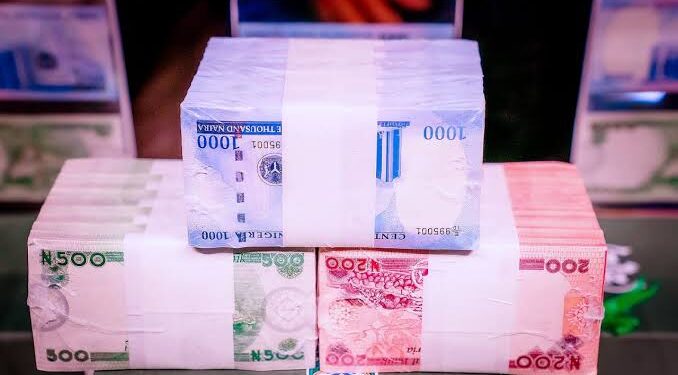As the Central Bank of Nigeria (CBN) launched the new naira in some selected states, some Nigerians have urged the Federal Government to implement infrastructure and measures that would support the country’s business landscape.
Dr Oluyemisi Folasire, a Family Physician and Senior Lecturer at the Department of Human Nutrition and Dietetics at the University of Ibadan, said it was nice to have a new naira note. Still, it might not have the effect people expected.
“Monies are sprayed at parties and would still get dirty unless we change our culture of handling or mishandling handbills.
“The N20,000 limit for the cashless policy is not fair enough, but it might be safe to curb theft.
“It might be inconvenient, but it helps protect consumers in the long run. I am sure the government meant well but it will take us time for us to adjust to the stringent rules of the CBN,” she said.
Folasire noted that things might be a little more expensive due to the change of currency because of the laymen’s knowledge of the change.
Paul Aladegbuyi, a civil servant, said it was a welcome development, but CBN needs to get the opinion of the end users to improve its policies.
“The CBN may have to do a town hall meeting on what would be appropriate as the limit of cash for its cashless policy. There is the need for feedback from the end users if it would really drive the economy.
“We have lots of people in small-scale businesses, and the limit of cash will have enormous effects on the businesses.
“Considering the average of our spending, the limit and the value of naira must be reviewed. In view of the above, more consultations should be done by the apex bank in Nigeria and a balance should be struck.
Dr Feyi Ijimakinwa, a lecturer, said there was usually disenchantment between policy plans and implementation.
He emphasised the need for citizens to be aware of and sensitised to the new currency and its implications, especially those in rural areas and villages.
Ijimakinwa also said the government needed to provide safety nets and implement measures to prevent fraudsters from preying on innocent people.
“All sorts would play out; we will see counterfeit notes, and some will defraud unsuspecting Nigerians.
“The government has not done enough enlightenment to ensure that redesigning of naira achieved the set objectives,” Ijimakinwa said.
He said the government needed to put measures and infrastructure in place to achieve its cashless policy, as many issues needed to be addressed for effective operation.
According to the BBC report, Nigeria’s central bank officially introduced the newly redesigned naira notes across the country on Thursday, December 15, 2022.
Officials say the new ₦200, ₦500, and ₦1000 notes would be very difficult to forge.
While both notes—old and new—are still valid for now, Nigerians have until January 31 to exchange old naira notes with the new before they expire.
The notes which are currently in circulation are ₦5, ₦10, ₦20, ₦50, ₦100, ₦200, ₦500, ₦1000.
Aside from the newly redesigned bank notes, the apex bank also introduced a new weekly cash withdrawal limit.
From January, CBN said customers can only withdraw a maximum weekly amount of ₦100,000 for individuals and ₦500,000 for corporate organisations.
CBN said the apex bank wants to reduce the amount of cash in circulation hence the limitation.









